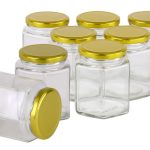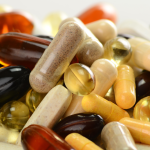From gummies to teas and bath bombs, CBD products have become incredibly popular. A 2019 Gallup poll found that 14 percent of Americans say they use CBD products. According to the same study, 40 percent of U.S. CBD consumers use the products for pain relief, 20 percent for anxiety, 11 percent for insomnia, and eight percent for arthritis. But do CBD products really make a difference in these areas? To understand CBD’s effectiveness, you should start by understanding how these products are produced and used.
Table of Contents
CBD vs. THC
Both CBD (cannabidiol) and THC (tetrahydrocannabinol) are natural compounds derived from the cannabis plant. They share the same molecular structure, but the arrangement of their atoms produce very different effects.
CBD and THC interact with cannabinoid receptors, altering the release of neurotransmitters, which transmit messages between neurons. Both have psychoactive effects but to a different extent. THC produces a high or euphoria because it effectively binds to the brain’s cannabinoid 1 receptors. On the other hand, CBD only forms weak binds to these receptors and thus doesn’t have the same intense psychoactive effects.
While more research needs to be conducted to confirm all the effects of both CBD and THC, many users tout the health benefits associated with cannabis-derived products.
Consumers commonly use CBD products to help treat the following:
- Pain
- Nausea
- Seizures
- Inflammation
- Acne
- Anxiety
- Depression
- Migraines
- Psychosis
- Inflammatory bowel disease
- Cancer-related symptoms
- Addiction management
Similarly, THC may help with the following:
- Pain
- Insomnia
- Low appetite
- Glaucoma
- Muscle spasticity
- PTSD symptoms
- Cancer-related symptoms
- Reducing tremors associated with Parkinson’s disease
- Reducing chronic pain associated with fibromyalgia, endometriosis, and interstitial cystitis
The side effects of CBD include diarrhea, appetite changes, weight loss, fatigue, and dizziness. THC use tends to have more temporary side effects, which are part of its psychoactive properties, like dry mouth, increased heart rate, slower reaction times, memory loss, coordination problems, anxiety, and red eyes.
Common CBD Uses
CBD Oils
The seeds, flowers, and stalks of the hemp plant undergo an extraction process that pulls out an extract. It is then combined with base or carrier oils like coconut oil, MCT oil, hemp seed oil, or vegetable glycerin base to make CBD oil. The carrier oils make it easier for the body to absorb the compound, and for this reason, it is the most potent (and expensive) of all CBD forms.
Apart from cannabinoids, CBD oils may also contain proteins, nutrients, fatty acids, and essential vitamins. Often, people prefer consuming CBD oil by infusing it into drink and food recipes, but you can also consume it by dropping it under your tongue. It depends on how much oil you take, but you can expect the effects to last for about two to six hours.
Tinctures
Although you can consume CBD oil and tinctures in the same way, the two product types include different ingredients. Typically, CBD tinctures include liquid hemp extract, alcohol, glycerin, and a carrier oil such as cinnamon, peppermint, or orange oil. Tinctures have a high concentration of CBD, meaning you should consume the liquid in small doses. Effects usually last for four to six hours.
Topicals
Cannabis-infused topicals include lotions, balms, salves, sprays, and oil. Using CBD products transdermally offers localized relief for pain, inflammation, and soreness because the CBD binds to cannabinoid receptors but does not enter the bloodstream.
Edibles
CBD edibles are products you can eat. They come in different types, but most edibles available for purchase are gummies, sweets, and candies.
The primary difference between edibles and other forms of CBD products is the length of time CBD takes to kick in. While you can notice the effects of CBD in your system within 15 minutes with tinctures, edibles take nearly 30 minutes to two hours to kick in. However, the effects of CBD gummies can last up to eight hours, in comparison to the two to six-hour effects of CBD oils.
Capsules
CBD capsules are arguably the most convenient way to deliver cannabidiol to the body and offer consistent dosing. The capsules contain high-quality CBD extracted from hemp and sometimes include other ingredients to complement the effects of CBD like terpenes, MCTs, or turmeric.
CBD capsules come in three different forms: full-spectrum, broad-spectrum, and CBD-isolated products. Full-spectrum CBD capsules preserve all cannabinoids, flavonoids, and terpenes, while broad-spectrum preserves all-natural cannabinoids and terpenes except THC. In CBD-isolated capsules, cannabidiol is completely separated from the other constituents. CBD capsules pass through the digestive tract, subjecting them to additional breakdown that decreases their potency.
Finding the Right CDB Product
Different CBD products offer different benefits depending on the methods involved in the processing and the ingredients used. It’s important that you experiment or work with a medical practitioner to figure out the product that works for you.








I used CBD oil for insomnia. It does not cause any side effects, unlike other drugs and pills. I use Swiss organic oil and now I am observing excellent results. I get enough sleep, I feel that I have rested during sleep and have the energy to live a new day.
ALPINOLS organic CBD oils are sustainably cultivated, processed and bottled in Switzerland. 15 years of experience in cannabis cultivation, harvesting by hand under the strictest Bio Swiss guidelines, which is combined with the most innovative technology.